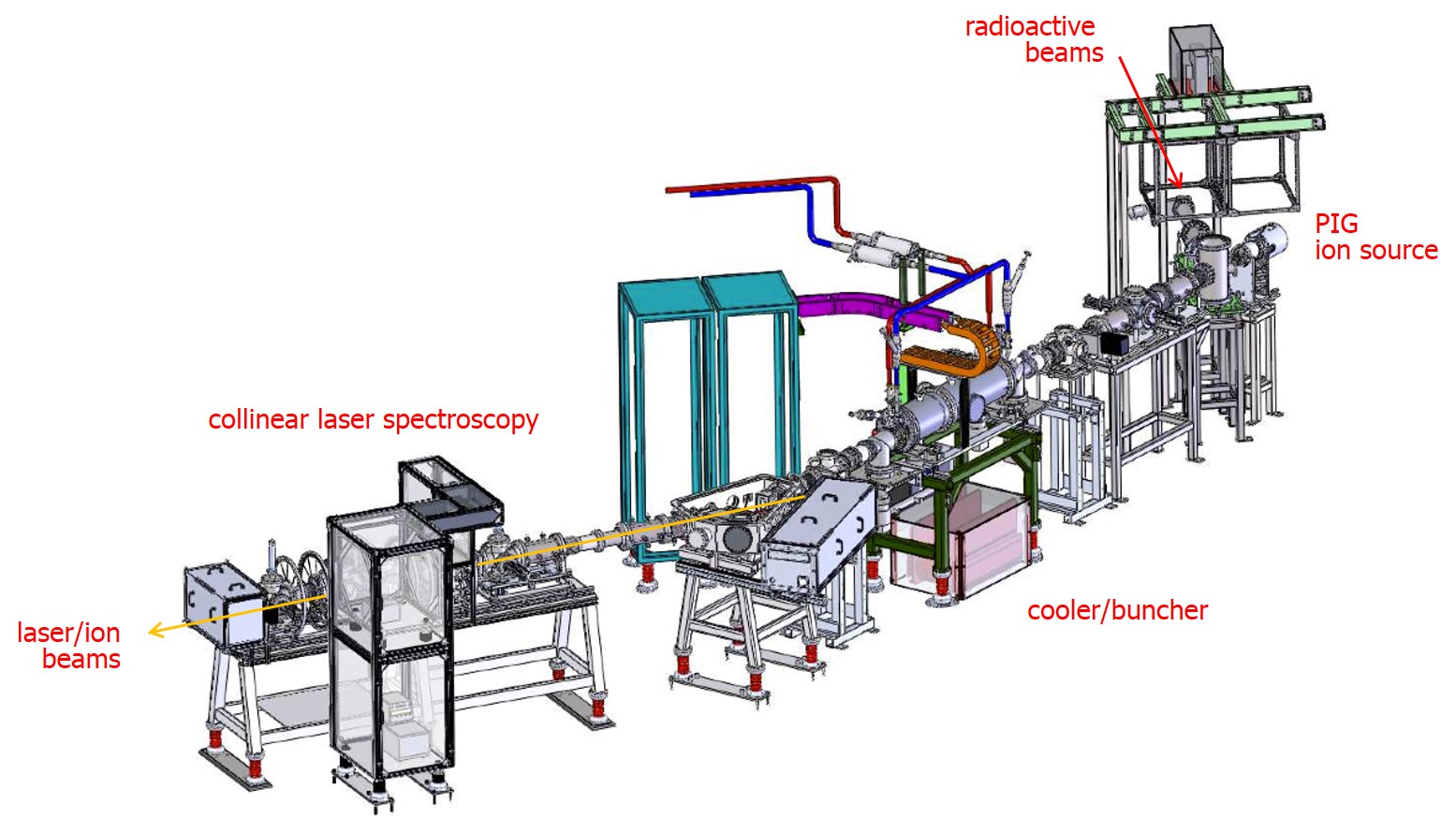About BECOLA
The BEam COoler and LAser spectroscopy (BECOLA) facility [1] is a collinear laser spectroscopy facility at NSCL(FRIB) at Michigan State University. Fundamental properties of radioactive nuclides such as charge radius, electromagnetic moments and nuclear spins are determined from hyperfine structure measurement. Nuclear polarized beams can be produced using optical pumping technique and utilized in the beta-ray detecting nuclear magnetic resonance (β NMR) technique for nuclear moment measurements and is planned to be used in fundamental symmetries tests e.g. tests of the maximum parity violation and time reversal invariance.
Radioactive isotopes produced in projectile-fragmentation reactions and subsequent in-flight separation [2] are thermalized in the NSCL gas stopper [3] and extracted at low energy (typically 30 keV). The low-energy beam is then transported to the BECOLA facility. The beam is first injected into the BECOLA RFQ cooler and buncher [4] and then transported to the collinear laser spectroscopy (CLS) beam line. Laser light is overlapped with the ion beam and resonant fluorescence is detected using a photomultiplier tube as a function of laser frequency and time relative to the beam bunch. The hyperfine structure can be determined from the locations of resonances.

[1] K. Minamisono et al., Nucl. Instrum. Methods Phys. Res. A 709, 85 (2013).
[2] D. J. Morrissey et al., Nucl Instrum Methods Phys. Res. B 204, 90 (2003).
[3] K. Cooper et al., Nucl. Instrum. Methods Phys. Res. B 763, 543 (2014).
[4] B. A. Barquest, PhD thesis, Michigan State University (2014).
This material is based upon work supported in part by NSF Grant NOs. PHY-11-02511 and PHY-12-28489.